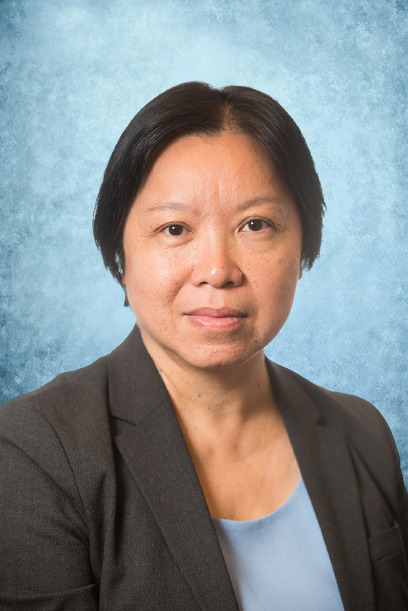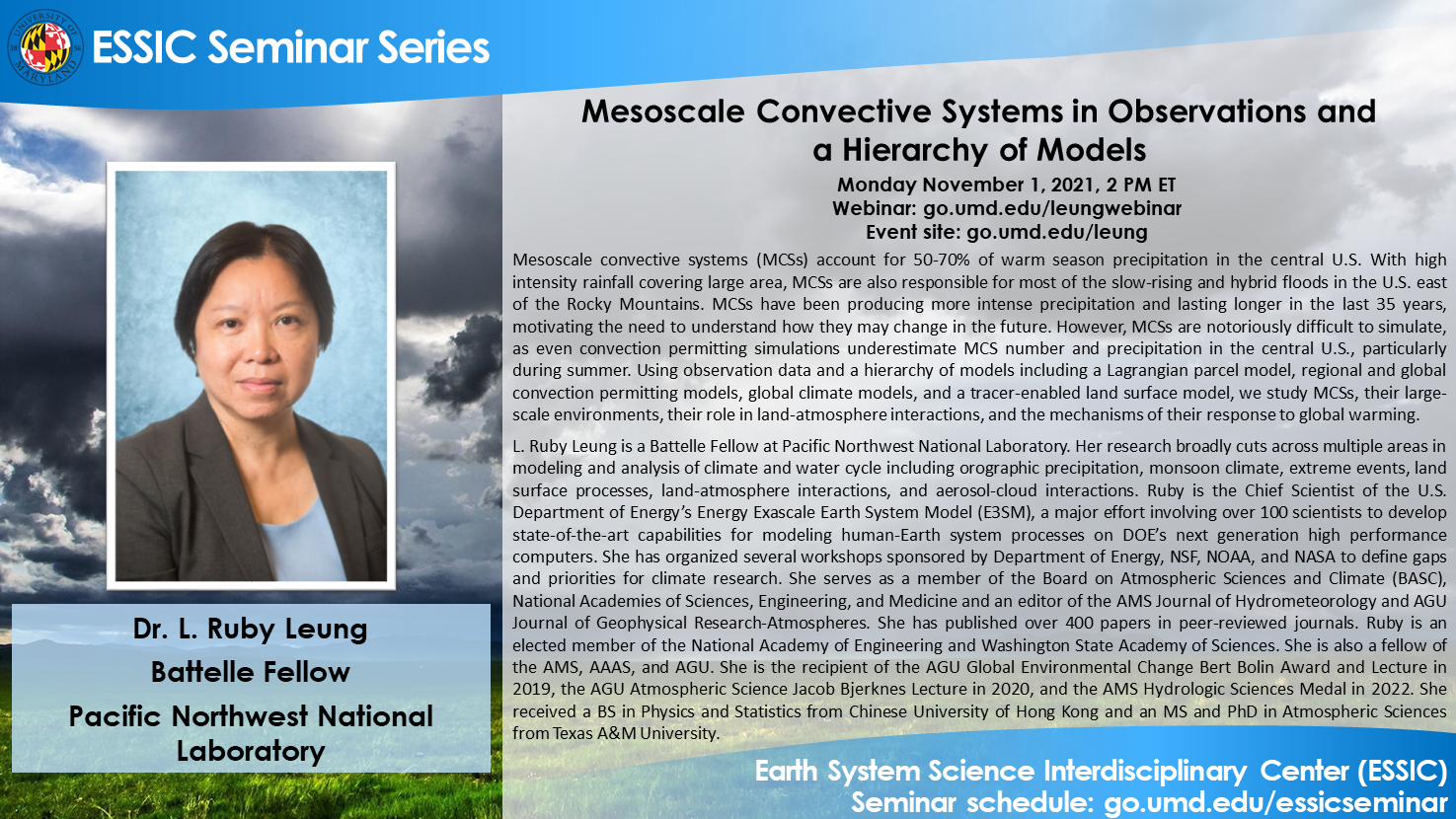
Mesoscale Convective Systems in Observations and a Hierarchy of Models
This event has passed. View the seminar recording here:
Dr. L. Ruby Leung
Pacific Northwest National Laboratory
Monday November 1, 2021, 2 PM ET
Abstract:
Mesoscale convective systems (MCSs) account for 50-70% of warm season precipitation in the central U.S. With high intensity rainfall covering large area, MCSs are also responsible for most of the slow-rising and hybrid floods in the U.S. east of the Rocky Mountains. MCSs develop under different environments featuring frontal systems and the Great Plains low-level jet providing a lifting mechanism and moist environment for initiation of MCSs. During summer, eastward propagating sub-synoptic perturbations are crucial for MCS initiation under unfavorable large-scale circulations. MCSs have been producing more intense precipitation and lasting longer in the last 35 years, motivating the need to understand how they may change in the future. However, MCSs are notoriously difficult to simulate, as even convection permitting simulations underestimate MCS number and precipitation in the central U.S., particularly during summer. Using observation data and a hierarchy of models including a Lagrangian parcel model, regional and global convection permitting models, global climate models, and a tracer-enabled land surface model, we study MCSs, their large-scale environments, their role in land-atmosphere interactions, and the mechanisms of their response to global warming.
Biosketch:
Ruby Leung is a Battelle Fellow at Pacific Northwest National Laboratory. Her research broadly cuts across multiple areas in modeling and analysis of climate and water cycle including orographic precipitation, monsoon climate, extreme events, land surface processes, land-atmosphere interactions, and aerosol-cloud interactions. Ruby is the Chief Scientist of the U.S. Department of Energy’s Energy Exascale Earth System Model (E3SM), a major effort involving over 100 earth and computational scientists and applied mathematicians to develop state-of-the-art capabilities for modeling human-Earth system processes on DOE’s next generation high performance computers. She has organized several workshops sponsored by Department of Energy, National Science Foundation, National Oceanic and Atmospheric Administration, and National Aeronautics and Space Administration to define gaps and priorities for climate research. She serves as a member of the Board on Atmospheric Sciences and Climate (BASC), National Academies of Sciences, Engineering, and Medicine and an editor of the AMS Journal of Hydrometeorology and AGU Journal of Geophysical Research-Atmospheres. She has published over 400 papers in peer-reviewed journals. Ruby is an elected member of the National Academy of Engineering and Washington State Academy of Sciences. She is also a fellow of the American Meteorological Society (AMS), American Association for the Advancement of Science (AAAS), and American Geophysical Union (AGU). She is the recipient of the AGU Global Environmental Change Bert Bolin Award and Lecture in 2019, the AGU Atmospheric Science Jacob Bjerknes Lecture in 2020, and the AMS Hydrologic Sciences Medal in 2022. She received a BS in Physics and Statistics from Chinese University of Hong Kong and an MS and PhD in Atmospheric Sciences from Texas A&M University.
Webinar:
Webinar: https://go.umd.edu/leungwebinar
Event site: https://go.umd.edu/leung
Webinar number: 2624 147 2821
Webinar password: essic
To join the audio conference only:
US Toll: +1-415-655-0002
Global call-in numbers
For IT assistance:
Cazzy Medley: cazzy@umd.edu
Resources:
Seminar schedule & archive: https://go.umd.edu/essicseminar
Seminar Google calendar: https://go.umd.edu/essicseminarcalendar
Seminar recordings on Youtube: https://www.youtube.com/user/ESSICUMD


